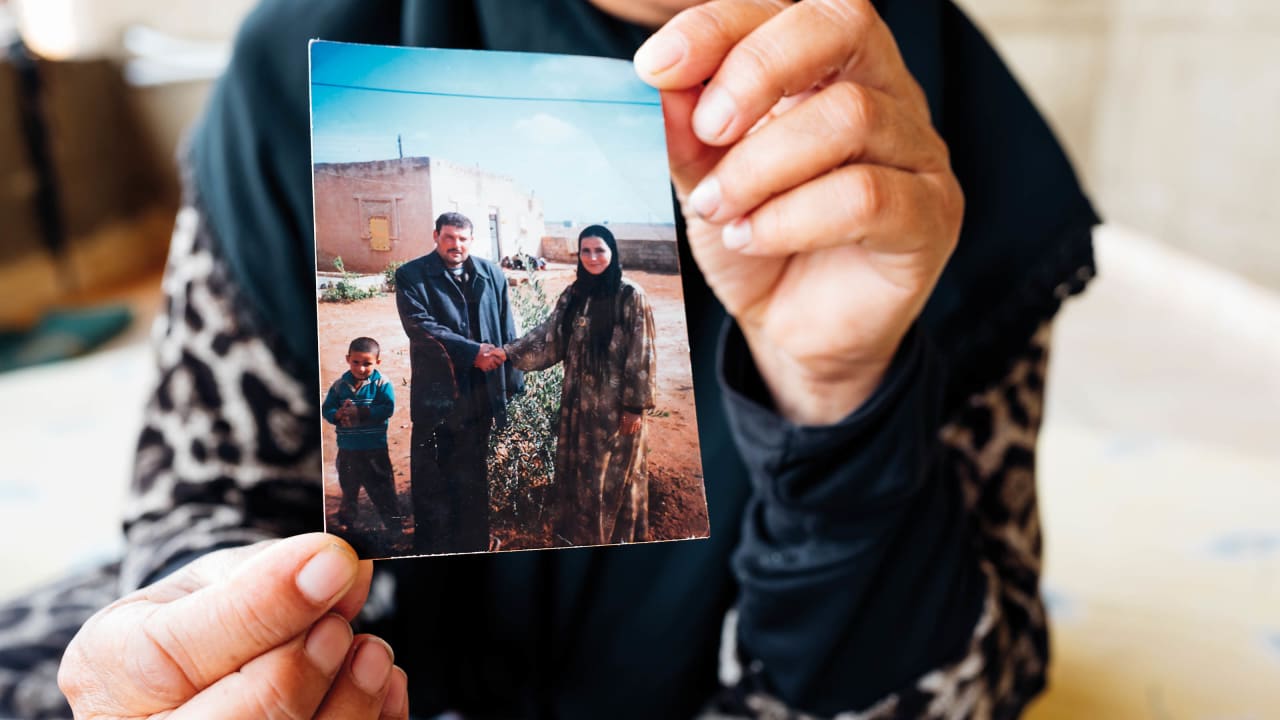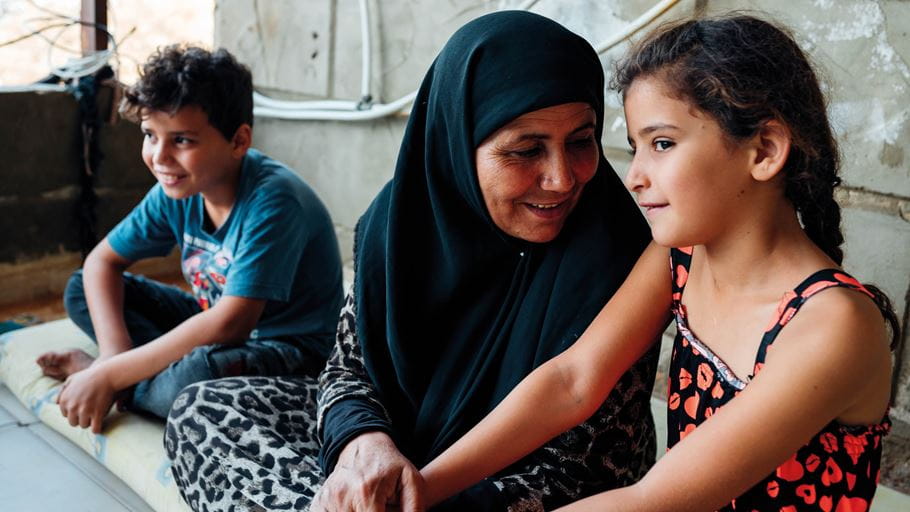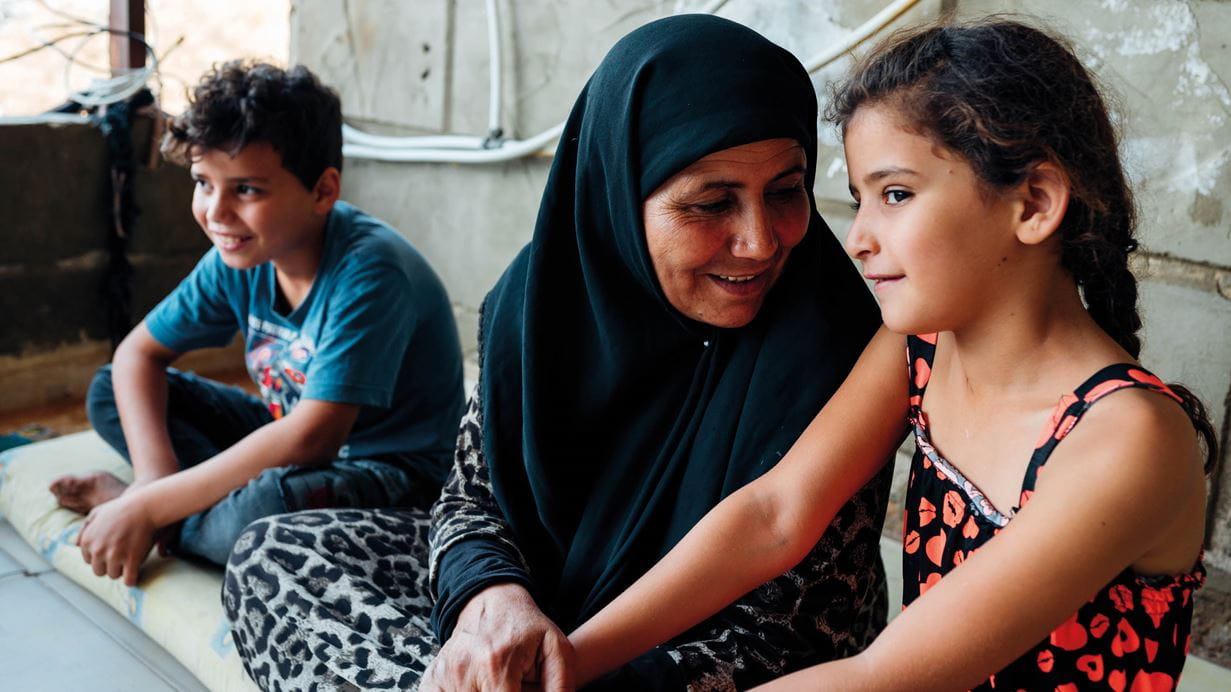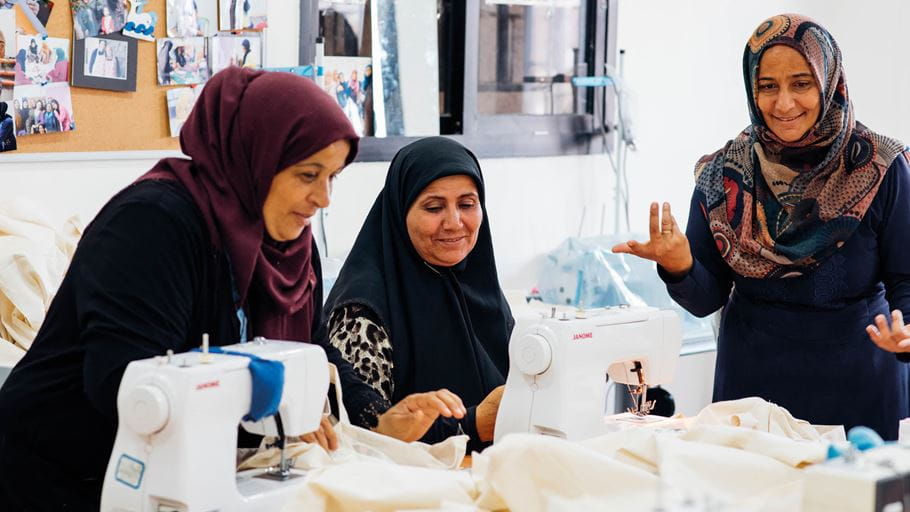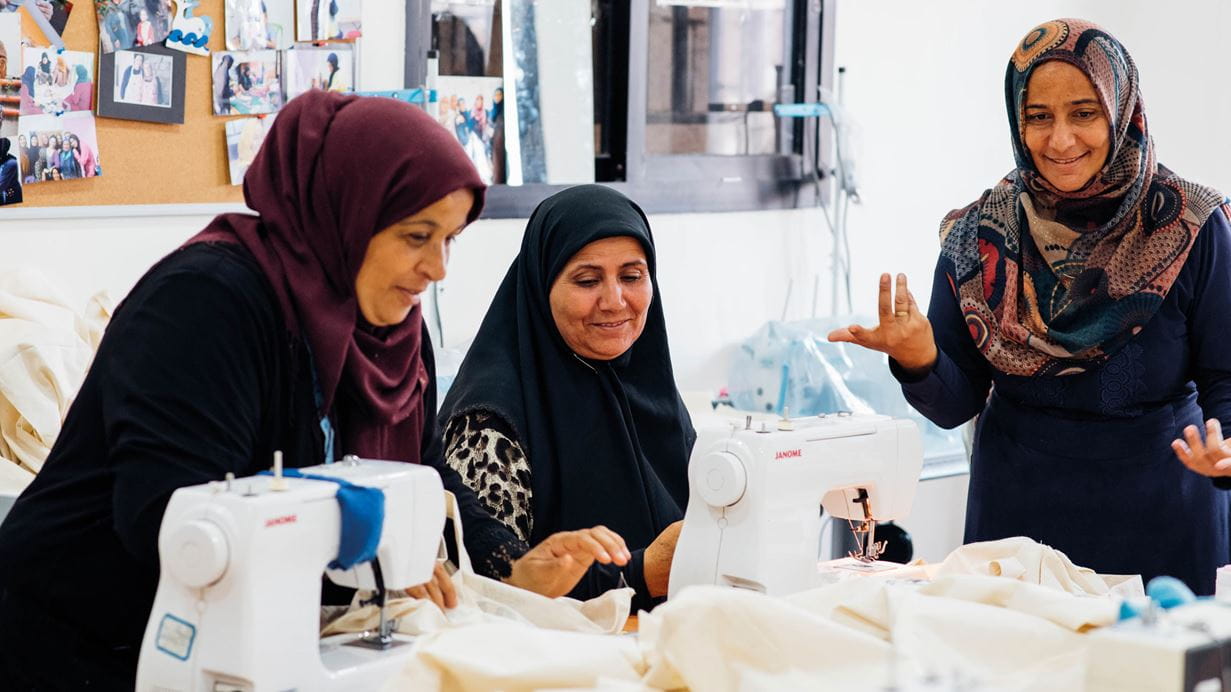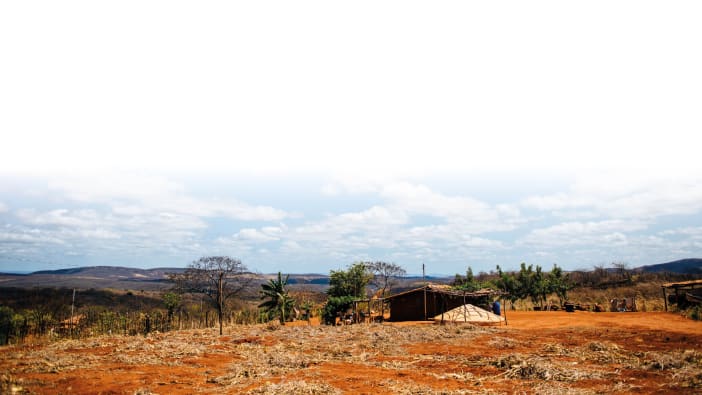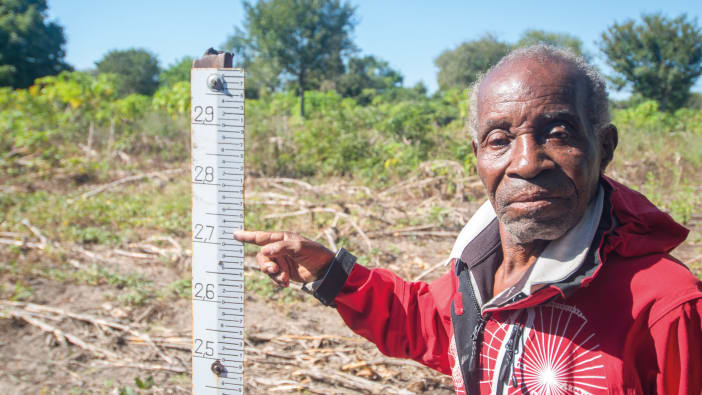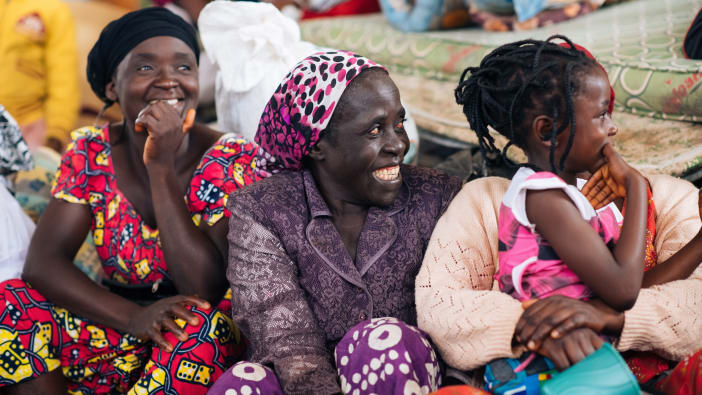Tamam lived a quiet and comfortable life in northern Syria with her family. They had a home in the countryside where they reared goats and cultivated fruit, olives, vegetables and herbs. Tamam remembers ‘a big land where we used to walk. We would just walk and not worry.’
When conflict came to her village, everything changed. There was no electricity or running water, the crops failed and the family became hungry as food prices rose. Eventually, Tamam and her children fled, making the difficult and dangerous journey to Beirut in neighbouring Lebanon.
All gone
‘This is the garden in front of my home,’ says Tamam, holding up a photograph. ‘It was a beautiful day and everything around us was nice. It was a happy moment. All that is left of that moment is this photo and me. Everything else has gone. My husband (who died in a car accident), the garden, my home… they are all gone but I remain.’
Tamam’s family now live in two rooms in the middle of Beirut. Their home is cramped and dangerous. The buildings are badly constructed and the roofs often leak and collapse. The neighbourhood is not safe for her traumatised children and finding enough money to pay the rent is a constant struggle.
Tamam is devastated that she and her children live in such conditions. ‘In Syria we did not have financial pressure,’ she says. ‘We did not have to worry about making ends meet. We did not have to pay rent, we had our own home. We were more comfortable and life was easier. Here we have faced economic pressure: paying for rent, paying for the children and all of their needs.’


